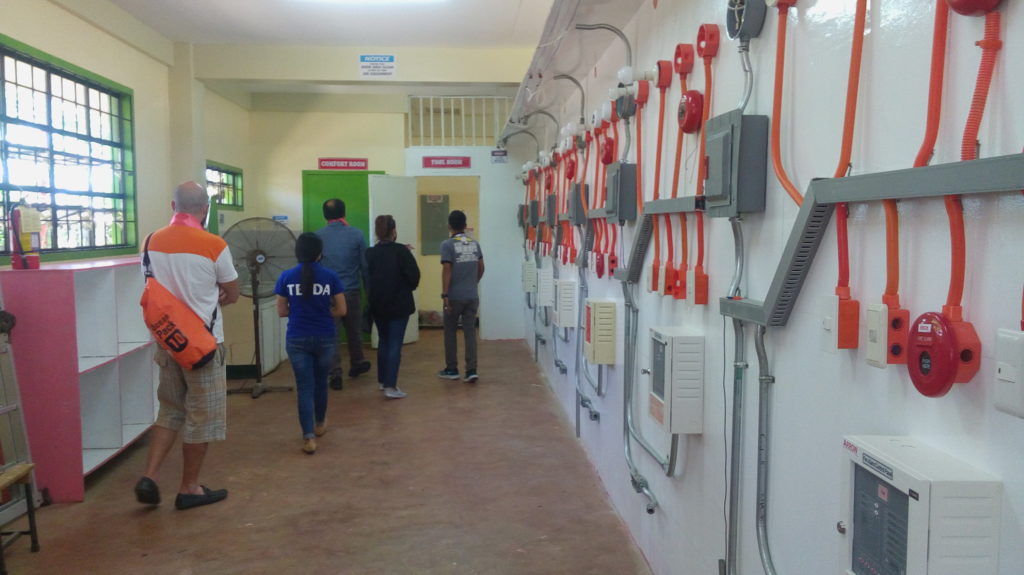
The EIM laboratory at the Daanbantayan National High School. | Doris Bongcac
MANDAUE CITY, Cebu — Education officials in Central Visayas are planning a review of courses offered under the K to 12 program to especially address concerns on job “mismatch.”
They are also working with Technical Education and Skills Development Authority (TESDA) in the identification of senior high schools that offer technical and vocational livelihood (TVL) courses that may be used as assessment centers.
Cristito Eco, assistant regional director of the Department of Education in Central Visayas (DepEd-7), said that graduates of the accredited schools would no longer have to travel far to secure TESDA assessment that would help them land better paying jobs.
“There were a lot of concerns when DepEd decided to make it K to 12. First, is the job mismatch,” Eco said.
The EIM laboratory at the Daanbantayan National High School. | Doris Bongcac
“We have a lot of jobs in the market, but most of these jobs are skilled and we don’t have the human resource. We don’t have graduates who should fill in these jobs available in the market,” he said.
“When we started the K to 12, particularly the TVL, it was rushed. The planning and some of the principals and the learners and the parents have decided to choose courses that right now are not anymore needed,” he said.
“Hence, the regional office will be working with the division office and the principals on the adjustment of the courses that we are offering in our schools because we want to offer the right course for the learners, for our students, that are in demand,” Eco added.
He said that the government’s K to 12 program was designed to help senior high school graduates land a job and eventually benefit the country’s economy.
“Therefore, we would like to make all our course offerings responsive to the needs of the community to realize the vision of the Department of Education that our education must be relevant and liberating,” he said.
“When we offer the right courses to our learners to respond to a demand then eventually they will be employed and they will be liberated from the chain of poverty,” he said.
Eco, who spoke during the recent turnover of equipment for the TVL laboratory at the Daanbantayan National High School, said that “the regional office is also working hard on how are we to support our schools, how are we to support teachers and all the people, all who are working with us in pursuit of quality education in the entire Region 7.”
He expressed appreciation to Project RELY that is funded by the European Union for the donation of equipment that will aid in the integration of solar power into the Electrical Installation and Maintenance (EIM) course of the Daanbantayan NHS, through its partners Sequa gGmbH, Vivant Foundation, and PROCESSBohol.
“On the part of our teachers and the school, our reminder is that make use of these equipment. Maximize the use of these equipment because we do not want a repeat of the sad experience in the past on our donated equipment, donated facilities that these were not utilized, and eventually these become irrelevant. And pag hindi ginamit ang mga equipment (if these equipment will not be used) these will eventually be destroyed,” Eco said.
Eco said that the availability of the donated equipment will help the school become one of the pilot schools for the planned establishment of a TESDA assessment center.
He said that the benefits of having an assessment center, its rules and regulations, and the responsibilities of both parties would be specified in the Memorandum of Agreement that would have to be prepared in coordination with TESDA.
“We are setting up standard assessment centers in the entire Region 7 with specific and strategic locations in the entire Region 7,” Eco said. /dbs